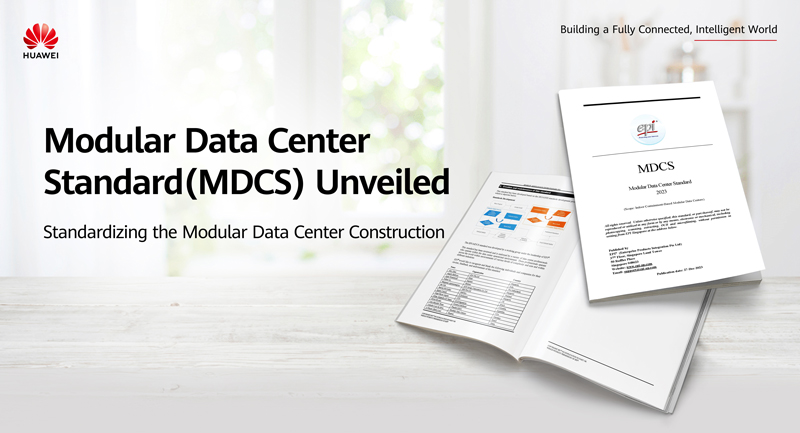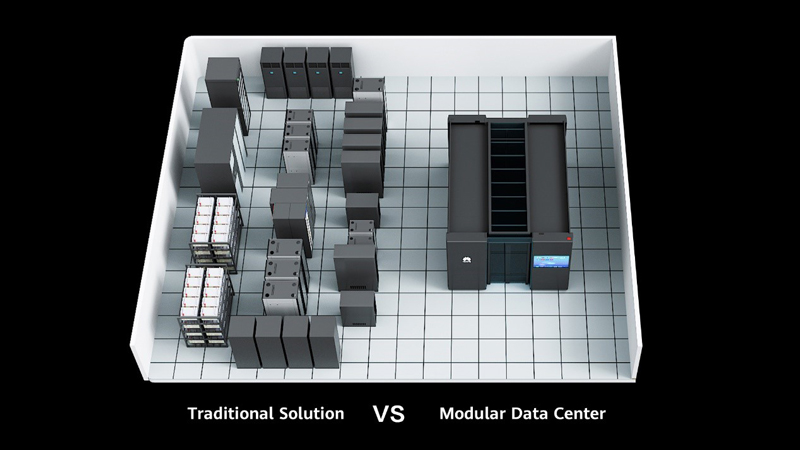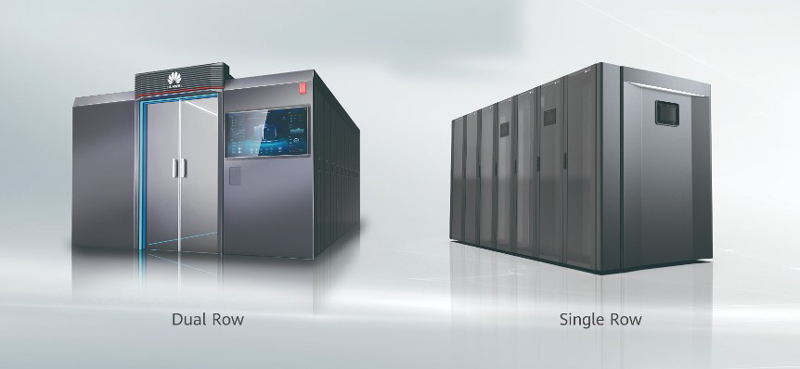【Singapore, December 27, 2023】EPI(Enterprise Products Integration Pte. Ltd.), a global leader in data center certification, has officially unveiled the "Modular Data Center Standard" (MDCS).
Developed under the leadership of EPI, this standard was collaboratively prepared by a global committee representing various industries and countries, including contributions from Huawei. MDCS aims to establish a cohesive set of technical requirements, promoting uniformity, compatibility, and sustainability in the implementation and management of indoor, containment-based modular data centers. It encompasses essential elements, including environmental considerations, structural, electrical, mechanical, cabling, security, fire safety, integrated wiring, and monitoring and control subsystems.

Modular Data Centers: The Preferred Solution for Small and Medium-Sized Data Centers
The surge in large language models (LLMs) and generative AI has led to an unprecedented demand for massive data processing and computing power, driving digital transformation and AI applications across various sectors, including Internet, finance, education, and healthcare. This shift has increased power density requirements in small and medium-sized data centers, highlighting their reliability and availability.
In the past, small and medium-sized data centers often adopted traditional construction mode, involving separate procurement and on-site installation of components like cabinets, air conditioning, UPS, and batteries. This approach typically resulted in long construction period, complex installation, and limited environmental adaptability.

In contrast, modular data centers feature a highly integrated design, combining subsystems such as power distribution, cooling, cabinets, wiring, and monitoring into a single module. They use enclosed channels to effectively isolate cold and hot areas, allowing for on-demand cooling. Each module functions as an independent data center, thereby eliminating the need for raised floors and facilitating flexible deployment in various environments and ceiling heights, significantly reducing construction time. This approach is increasingly becoming the preferred choice for small to medium-sized data centers.
With the rapid evolution of cloud and edge computing technologies, the modular data center market has seen substantial growth, establishing modular data centers as a mainstream model. However, traditional standards, focusing primarily on individual products and components, have been insufficient for providing comprehensive guidelines for the modular data center sector. This shortfall underscored the need for universally applicable technical standards to ensure this sector’s high-quality development.
MDCS Sets New Standards for Modular Data Center Construction
The introduction of MDCS fills this gap, offering a definitive reference for modular data center construction and significantly enhancing their reliability and availability.
Under this standard, a Modular Data Center (MDC) is defined as an indoor structure comprising either two opposing rows or a single row of cabinets, equipped with supporting equipment, such as power and cooling subsystems, and contained within.

This standard covers detailed guidelines for structural design, cooling, power supply, safety, fire protection, and monitoring. For example, the MDC shall be prefabricated for rapid deployment. The system shall be designed to minimize space while shipping/transporting and should require minimum labor during the assembly and installation on site. In addition, the MDC shall adopt integrated UPS to reduce footprint and installation time.
As the modular data center market expands, Huawei Data Center Facility is set to lead this transformative journey. Committed to innovation, Huawei will actively engage in developing international standards, helping customers and partners build reliable, efficient small and medium-sized data centers, and driving the industry towards a new era of growth and sustainability.

 Search
Search




 Search
Search


